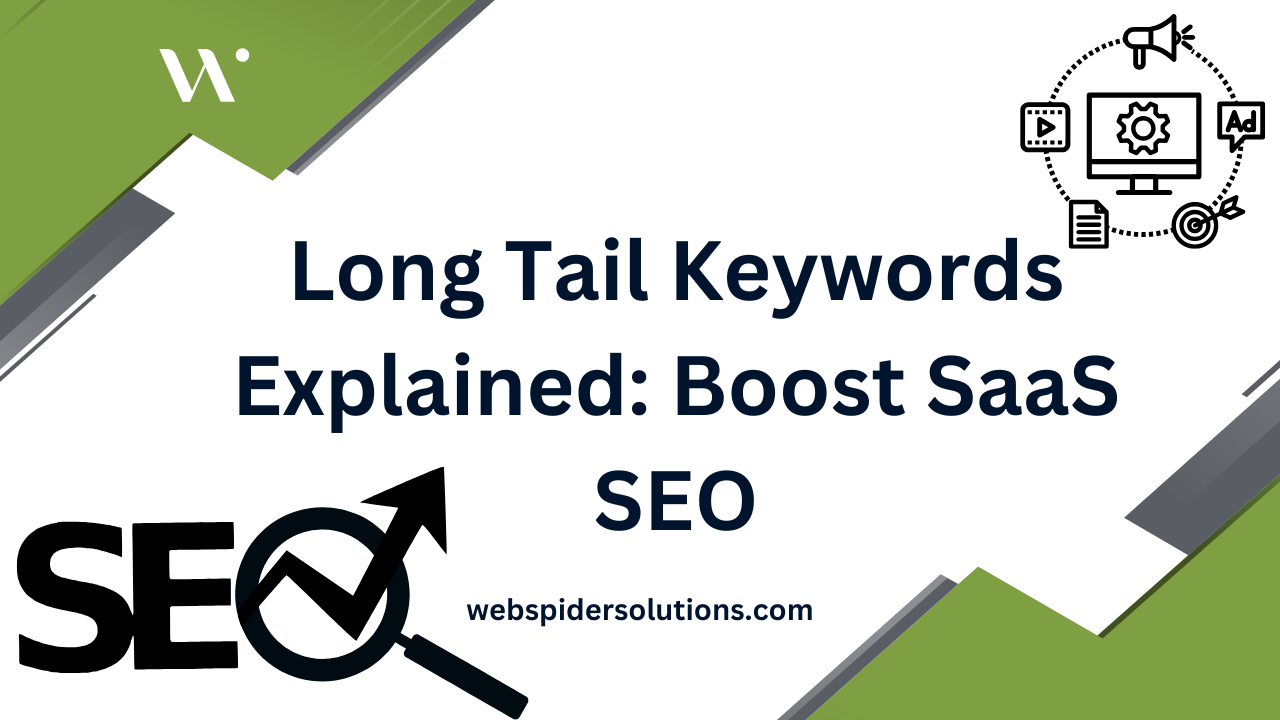Every day, people run over 13.7 billion searches on Google alone, showing just how central search engines have become to daily life online. Whether finding a recipe or researching complex topics, these powerful systems shape the way information is discovered and accessed. Knowing how search engines work, and what drives them, gives you a clearer path to standing out and reaching more people in the crowded digital world.
Key Takeaways
| Point | Details |
|---|---|
| Search Engine Functionality | Search engines utilize crawling, indexing, and ranking to transform vast web content into organized, searchable results for users. |
| Importance of SEO | Effective SEO strategies enhance website visibility and require an understanding of evolving algorithms and user engagement metrics. |
| Advanced Technologies | Modern search engines implement AI, machine learning, and natural language processing to deliver personalized, relevant search results. |
| Common Misconceptions | Quality content remains essential; outdated or simplistic SEO tactics can hinder digital marketing efforts, emphasizing the need for authentic, valuable information. |
Table of Contents
- Search Engines Defined And Core Functions
- Crawling And Indexing Processes Explained
- Search Algorithms And Ranking Factors
- SEO Impact On Search Engine Visibility
- Common Search Engine Misconceptions And Pitfalls
Search Engines Defined and Core Functions
A search engine is a sophisticated digital system designed to help users find information across the vast landscape of the internet. At its core, a search engine functions like an immense library catalog, transforming billions of web pages into searchable, ranked results. According to search volume research, Google alone handles over 5 trillion searches annually, which translates to approximately 13.7 billion daily queries – highlighting the incredible scale and complexity of modern search technologies.
The fundamental operations of search engines involve several critical stages: crawling, indexing, and ranking. Crawling begins when automated programs called web crawlers systematically browse websites, discovering new content and following links between pages. These crawlers then send discovered information back to the search engine’s massive data centers. Indexing follows, where the collected web content gets organized and stored in a structured database that enables rapid retrieval when users submit search queries.
When a user enters a search term, the engine performs complex computational processes to deliver the most relevant results. Understanding SEO becomes crucial in comprehending how websites compete for visibility. Ranking algorithms analyze hundreds of factors including content relevance, website authority, user engagement metrics, and contextual signals to determine which web pages appear in search results. Metasearch engines demonstrate another fascinating approach by aggregating results from multiple search platforms, showcasing the intricate mechanisms behind information retrieval systems.
Modern search engines have evolved far beyond simple keyword matching. They now leverage advanced technologies like natural language processing, machine learning, and semantic understanding to interpret user intent and deliver increasingly precise, personalized search experiences. The goal remains consistent: connecting users with the most relevant, high-quality information as quickly and efficiently as possible.

Here’s a comparison of key processes involved in how search engines operate:
| Process | Description | Key Technologies |
|---|---|---|
| Crawling | Discovering and collecting web pages | Web crawlers IndexNow Decentralized crawling |
| Indexing | Organizing data for fast search retrieval | Structured databases Context analysis |
| Ranking | Sorting results based on relevance and quality | Algorithms Machine learning Semantic analysis |
| SEO Impact | Optimizing visibility and user engagement | Technical SEO GEO Content quality |
Crawling and Indexing Processes Explained
Search engines use sophisticated web crawling mechanisms to discover and map the vast digital landscape of internet content. Automated programs called web crawlers or spiders systematically navigate websites, following hyperlinks and collecting information about each page they encounter. These digital explorers work continuously, creating a comprehensive snapshot of online content that enables rapid information retrieval.
The indexing process transforms raw web data into a searchable database. When crawlers collect web page content, search engines analyze and store this information in massive, structured databases. Specialized algorithms parse text, understand context, and create complex mappings that allow near-instantaneous retrieval of relevant information. Understanding site architecture plays a critical role in how efficiently these crawlers can navigate and index website content.
Interesting innovations are emerging in crawling and indexing technologies. According to research, protocols like IndexNow are revolutionizing traditional approaches by allowing websites to directly notify search engines about content changes via API calls. This method dramatically reduces the time between content creation and its appearance in search results. Similarly, decentralized search technologies like YaCy demonstrate alternative architectures where peer-to-peer networks independently crawl, analyze, and share indexed content across distributed systems.
Modern search engines employ advanced machine learning techniques to optimize crawling and indexing processes.
They prioritize high-quality, frequently updated content, and use sophisticated algorithms to understand webpage relevance, authority, and user engagement. The goal remains consistent: creating a comprehensive, quickly accessible index of global internet information that delivers precise results in milliseconds.
Search Algorithms and Ranking Factors
Search algorithms form the intelligent core of modern search engines, determining how information is evaluated, sorted, and presented to users. These complex mathematical formulas analyze hundreds of signals to decide which web pages best match a user’s search query. At the heart of this process lies the continuous evolution of ranking technologies that aim to deliver the most relevant, high-quality results possible.
One of the most significant advances in search technology is RankBrain, a machine learning algorithm introduced by Google in 2015. According to research, RankBrain helps interpret complex and unfamiliar search queries by understanding context and semantic relationships. This means the algorithm can comprehend the intent behind searches, not just match keywords. SEO ranking factors have become increasingly sophisticated, moving far beyond simple keyword matching to include nuanced understanding of content quality, user experience, and contextual relevance.
Recent academic research highlights emerging trends in search ranking. A 2024 study proposes innovative approaches to content freshness, suggesting that search algorithms should dynamically detect when queries require up-to-date information. This approach represents a significant shift towards more intelligent, context-aware search results that prioritize not just relevance, but also the timeliness of content.
Modern ranking factors encompass a wide range of signals, including content quality, website authority, user engagement metrics, page loading speed, mobile responsiveness, and the expertise demonstrated in the content. Search engines now use advanced machine learning techniques to continuously refine their understanding of what constitutes a high-quality, relevant search result. The ultimate goal remains consistent: connecting users with the most accurate, helpful, and trustworthy information in the most efficient manner possible.

SEO Impact on Search Engine Visibility
Search Engine Optimization (SEO) plays a critical role in determining how visible and accessible a website becomes in search engine results. It’s a strategic approach that goes beyond simple keyword placement, involving complex techniques to improve a website’s ranking, credibility, and user experience. Businesses and content creators invest significant effort in understanding and implementing SEO strategies that align with constantly evolving search engine algorithms.
The landscape of SEO is rapidly transforming with the emergence of artificial intelligence. A recent study revealed fascinating insights into how traditional SEO continues to remain relevant. Remarkably, 45% of top Google ranking pages and 63% of top Bing ranking pages were also present in ChatGPT results, demonstrating the enduring importance of robust SEO practices. SEO strategy guide becomes crucial for businesses seeking to maintain their digital visibility in this dynamic environment.
An exciting new frontier in search optimization is Generative Engine Optimization (GEO), an innovative strategy emerging in late 2023. This approach focuses on optimizing content specifically for visibility in AI-generated answers across platforms like ChatGPT, Google Gemini, and Perplexity. GEO represents a significant shift in SEO thinking, requiring content creators to consider not just traditional search engine algorithms, but also the complex parsing mechanisms of generative AI systems.
Modern SEO success demands a holistic approach that integrates technical optimization, high-quality content creation, user experience design, and adaptive strategies. Websites must now optimize for multiple search contexts – traditional search engines, voice search, mobile platforms, and generative AI systems. The ultimate goal remains consistent: creating valuable, relevant content that effectively connects with target audiences across diverse digital landscapes.
Common Search Engine Misconceptions and Pitfalls
Search engine optimization is fraught with myths and misunderstandings that can seriously derail digital marketing efforts. Many businesses fall into predictable traps, believing oversimplified or outdated strategies will magically improve their online visibility. The reality is far more nuanced, requiring a sophisticated, adaptive approach to digital presence and content strategy.
One of the most prevalent misconceptions involves content generation and quality. According to recent research, Google’s anti-spam updates in 2024 specifically targeted low-quality, unoriginal content and scaled content abuse. This highlights a critical truth: quantity does not equal quality. SEO myths guide becomes essential for understanding the complex landscape of search engine algorithms, which increasingly prioritize authentic, valuable content over manipulative tactics.
The rise of artificial intelligence has introduced new misconceptions about content creation. Many assume that AI-generated content is a shortcut to ranking success. However, search engines have become remarkably sophisticated at detecting and potentially penalizing generic, machine-generated text that lacks genuine insight or value. The key is not to avoid AI tools entirely, but to use them strategically as a supplement to human creativity and expertise.
Successful search engine optimization requires a holistic approach that goes beyond technical tricks. Websites must focus on creating genuinely useful content, maintaining technical health, ensuring excellent user experience, and building authentic digital authority. The most effective SEO strategy is surprisingly simple: consistently produce high-quality, original content that truly serves your audience’s needs and interests.
Ready to Dominate Search in 2025?
Understanding the intricate world of search engines is crucial, but excelling in it requires expert guidance and hands-on support. If you are frustrated by missed opportunities due to confusing search algorithms, slow indexing, or weak SEO strategies, you are not alone. Common pain points like falling behind on AI-driven ranking factors, not knowing how to adapt to changes in SEO, and wasting resources on ineffective tactics all hold your business back from real digital growth.
Web Spider Solutions offers advanced digital marketing and SEO services designed for businesses serious about increasing their visibility and driving measurable results. We stay at the forefront of search innovation and AI advancements. Explore our expertise in next-generation search and artificial intelligence on our Artificial Intelligence Archives or visit Web Spider Solutions for a free consultation. Take action today and unlock the full potential of your online presence before your competitors do.
Frequently Asked Questions
How do search engines crawl and index web content?
Search engines utilize automated programs called web crawlers or spiders to systematically browse websites, following hyperlinks to discover content. This collected data is then organized into a searchable database during the indexing process, allowing for quick retrieval when users enter search queries.
What is the role of SEO in improving website visibility?
SEO, or Search Engine Optimization, is crucial for enhancing a website’s visibility in search engine results. It involves strategies and techniques, such as optimizing content quality, improving user experience, and ensuring technical health, to align with evolving search engine algorithms.
How do search algorithms determine the ranking of web pages?
Search algorithms evaluate hundreds of factors, including content relevance, website authority, user engagement metrics, and page loading speed, to determine how web pages are ranked. These algorithms continuously evolve to deliver the most accurate and high-quality search results based on user intent.
What is Generative Engine Optimization (GEO)?
Generative Engine Optimization (GEO) is a new strategy focused on optimizing content for visibility in AI-generated answers across platforms like ChatGPT and Google Gemini. This approach requires content creators to adapt their strategies to align with the parsing mechanisms of generative AI systems.
Recommended











